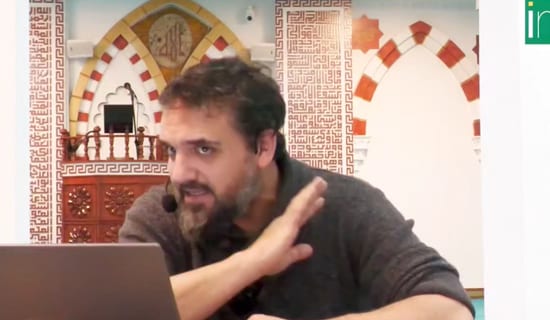Khaled Al-Dakhil, Saudi academic and columnist for the UAE daily Al-Itihad, wrote in his column that extremist discourse in Saudi Arabia enjoys significant freedom under the protection of the government, even though it often conflicts with state policy and interests. He also stated that extremist discourse has taken over school curricula, so that pupils are prevented from studying world history out of the fear that their faith might be compromised. [1]
The following are excerpts:
Extremist Discourse Enjoys More Freedom Than the State Allows Itself
"Terrorism initially emerged in the Arab world out of the religious discourse, due to the extremism which has tended to characterize it. But it also stemmed [from the fact that] extremism has gained a tyrannical hold over our society.
"Extremism would never have gained such a hold without the support of the authorities, even if this support was not given intentionally... [Other] types of discourse do not have the legitimacy that is enjoyed by the widespread extremist religious discourse, nor do they [receive] the same support, and the official state institutions do not treat them with the same amount of patience and tolerance. As a result, religious discourse enjoys significant freedom - even more freedom than the state [generally] allows itself...
"Examples of this abound: the call for young people to wage jihad outside the country and the [jurisdiction of] its authorities, contrary to the policy of the state and sometimes [even] contrary to its goals; [and] the espousal and dissemination of theological views that are contrary to the policy of the state and to its basic and permanent interests - views that flagrantly clash with these interests.
"It is astonishing that the religious discourse does [all] this from within the state institutions themselves, using the state's authorities, funds, and platforms. For example, notice how the religious discourse has managed, with surprising ease, to take over the curricula of the [Saudi] Ministry of Education and Culture, so that it [now] has total control over what may and may not be included in them - especially in curricula [dealing with] society and religion. The criteria are set by those who [lead] the [religious] discourse, according to their views [and] without consideration for the state's policy, rules, and interests."
SUPPORT OUR WORK

"Everything but Islamic History Has Been Eliminated From History Lessons at All Levels of State Education"
"An example is the study of world history, including European and American history. [Everything] but Islamic history has been eliminated from the history lessons at all levels of state education... even though Saudi Arabia is part of the world and has contacts with [other countries]...
"Why prevent pupils from learning world history, and especially European and American history? What is the educational goal behind this [policy]? After all, the most fundamental principle of education and of formulating curricula is to enrich the pupils' knowledge as much as possible... The decision to avoid the study of world history will only leave the pupil in a state of ignorance regarding the world, and will deprive him of the possibility of becoming familiar with the world and of coping with it....
"In taking this decision, the Ministry of Education and Culture has raised serious doubts as to the educational skills, the knowledge, and the political and ideological orientation of those in charge of formulating and developing the public [education] curricula.
"For example, why remove world history from the high school textbooks? The reason is probably that those who [lead] the religious discourse fear that if teenage pupils are exposed [to world history], and particularly to European and American history, they will be blinded by this history, and by the achievements [of these nations] in the spheres of knowledge, technology and politics. This may undermine and weaken the pupils' faith in Islamic history and in their Islamic identity, and as a result cause them to deviate from the faith - which would in turn lead them to lose touch with their Islamic history.
"But in reality, these fears are pathological and abnormal, and therefore totally unjustified. Moreover, they reveal systematic weakness of thought, lack of self confidence, and lack of total conviction in the power of Islam and in the richness of Islamic history...
"Actually, at its core, this is an approach that lacks faith in Islam and in its ability to coexist with other belief systems without [fear that Islam will be] weakened, undermined and eventually defeated. A defeated person can only have a defeatist outlook, and this is what has happened to the curricula in our country...
"Another [example which] demonstrates that the religious discourse [generates] theological accusations [even] against state policy appears in the 12th-grade textbook Al-Tawhid[Monotheism]. Chapter 15 says: 'Belonging to heretic movements like Communism, secularism, capitalism, etc. constitutes abandonment of Islam [which is punishable by death]. If a person who belongs to these movements purports to be a Muslim, this is great hypocrisy [on his part]...'"
"Do the Authors Mean to Accuse Saudi Arabia of Heresy Because it Belongs to the Global Capitalistic System?"
"Saudi Arabia, like other countries around the world, has a capitalistic regime nowadays. This begs the question: Do the authors [of the textbook] mean to accuse Saudi Arabia of heresy because it belongs to the global capitalistic system?...
"This contradiction shows that the state has failed to find a way, and perhaps does not wish to find a way, to bring reason into the [religious] discourse, and to end its rule, which sometimes seems to be as [powerful] as the rule of the state [itself]. The natural result is that the dominant extremist discourse exerts its tyrannical rule nearly everywhere: in the schools and universities, in the mosques, in the judicial system, and in media and culture institutions..."
[1] Al-Itihad (UAE), November 15, 2005. The article was also posted on a Kuwaiti website dealing with democracy and human rights: http://www.kwtanweer.com/articles/readarticle.php?articleID=576, December 5, 2005.




